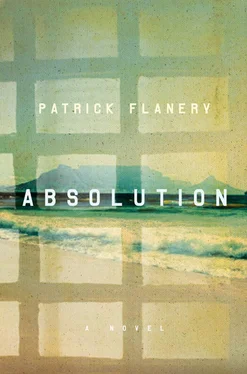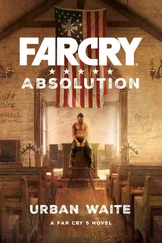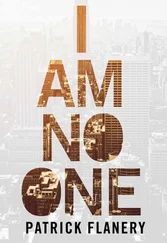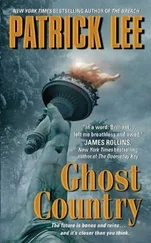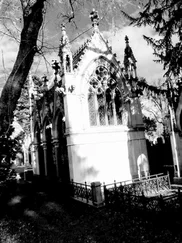‘We’re going to a clinic. It’s nearer Beaufort West than anywhere else. There’s nowhere particularly near to our clinic.’ Timothy held his hands over the blaze and Lionel muttered to him in a voice so low you could not make out his words. ‘You haven’t told us your name,’ he said.
‘Lamia.’
Lionel coughed and laughed. ‘Ah-ha, the night-monster.’ A cagy smile slashed through his face as he ran his hands down his hair, pulling it away from his body.
‘A sea monster, too. A shark. An owl. And a beetle,’ you said. With brazen brows and lips that smile . ‘My mother’s sense of humour.’
This was your invention, sowing confusion, as if to say you were and were not Lamia. You laughed to show you took it lightly. You were not your name, or not entirely your name, and the name was more than it suggested.
The two men looked at each other as if uncertain of you; Sam, filling the silence, moaned in his sleep, his arm twitching violently against your leg. You stroked his head, smiling to reassure the two men. They helped you put Sam to bed in their tent, tucking him into a sleeping bag, head on a pillow. How long, you wondered, since the child had slept as a child should, head cushioned, covered in blankets? How many nights had he slept in a moving truck, upright, or slumped against the door, the dog standing sentry over him?
You and the men returned to the fire and sat together drinking Old Brown Sherry out of tin cups. With antiseptic and cotton wool Timothy treated the wound on your leg, which had swollen up red and black. ‘A stray,’ you explained, ‘at a picnic stop. It was trying to get our food. I didn’t see it.’
‘You’ll have to see a doctor about it. It might have been rabid.’
‘I’ve known rabid dogs. This one was not. It was just mean.’ You asked them about themselves. They explained that it was the long vacation, the time when they could be away from university, doing good works, gaining experience, whatever boys who leave the city do when they’re away. And then Lionel turned the conversation.
‘Terrible things going on.’
‘Yes, terrible things,’ you agreed.
‘A dangerous time.’
‘A very dangerous time,’ you said. They did not know how dangerous.
‘Particularly for people like us. Young people.’
‘Yes, particularly.’
‘A very bad time.’
‘Indeed. The worst.’
To get this far, they had hitchhiked from Cape Town to George where they collected medical donations, and then from George to Oudtshoorn, before going on foot from Oudtshoorn into the pass. They had their tent, their sleeping bags, medical supplies for an emergency and enough food for a week of travel, which was the longest they reckoned it might take them to reach the clinic on foot if they couldn’t pick up another ride.
‘The clinic is funded by Lionel’s parents and their rich friends,’ said Timothy, smiling.
‘Which makes it sound like he’s from the gutter.’ Lionel elbowed his friend. ‘His mother is the head doctor at the clinic. What do you do?’
‘I used to be a reporter,’ you said, half-truthful. ‘I worked for the Cape Record .’
‘That must have been interesting.’
‘Yes, interesting.’ Too careful to say more, you watched the men hold their breath, as if doubting whether you were all on the same side. Were the sides so clear? you wondered.
‘And now you drive a truck?’ Lionel asked.
‘Now I drive a truck.’ You did not speak like a truck driver and Timothy again looked sceptical.
‘And your boy?’
‘As you say, it’s the long vacation. He comes with me when he’s not in school.’
It was late and you all began to yawn and stretch as the silences lasted longer. After half an hour you left the two men, saying goodnight as family would, with a familiar kiss on the cheek. In the tent, you folded your body into a corner, lying on the ground next to Sam, but unable to sleep yourself, a curse that returned always at the worst times, when sleep was what you needed most. As a child, you remember, you would pray to be able to remove your eyes, to dream as others dream, as if the eyes alone were responsible for waking or sleeping.
You watched Sam breathing, his thin lips parted, crooked teeth catching the light from the fire that filtered through the green material of the tent. The light carried the thick odour of wood smoke and returned you to earlier fires on the beaches of childhood holidays, to the farm for funerals and weddings, numberless ceremonies of the everyday and the extraordinary, fires built of acrid-smelling brush and lemon wood, fires built of pines that popped and fizzed with sap, fires built with coals and lighter fluid over which slabs of beef and fish were grilled, dripping juices that spat and sizzled. Below the crackling and hissing of the campfire that night, you could hear the men whispering.
Before dawn you rose and crept to the truck, slipping past them, arms pillowing their heads in sleep. Using one of Bernard’s shirts stashed in a bag under the seat and water carried in a plastic bottle from the showers at the edge of the campsite, you scrubbed the worst of the blood from inside the truck’s cab, until what remained was only a brown stain that bled into the lighter brown vinyl upholstery. If they asked, you would tell them that Sam got nosebleeds, since children often do, and then you remembered that Sam had actually had a nosebleed. The deception would itself be a kind of truth.
You washed in the shower, bracing under the cold water, and changed into shorts and your last clean shirt. Outside, it was light enough to see yourself in one of the truck’s mirrors. There were purplish bags under your eyes and you had recently chipped one of your front teeth. It was not a face you liked, too much of me in the jaw and complexion, too slack in the cheeks.
Stealing back to the camp, you found Sam sitting outside the tent, staring up into the trees. Since arriving at the campsite the night before, he had become affectless, less human, less present. ‘Did you sleep well?’
‘Can we phone my aunt? I want to go home now,’ a long high whine like a dog.
‘There’s no phone here. Come. Let me help you.’ You put Sam’s clothes, dirty with blood and vomit, into the campsite dumpster, and then dressed him in the last clean shirt and shorts in his small bag. At least you could count on delivering him to his aunt and being rid of the responsibility.
When the men woke, they brewed camp coffee and you drank in silence while Sam sipped from a tin of condensed milk. The usual formalities of travel, discussing a route, speculating about time and distance, detours, the boastful talk of men, these were all superfluous. There was only one logical way from there to Beaufort West, one road through the mountains.
After you finished your coffee, you helped the men collapse and pack the tent and bedrolls, everything compact and well maintained. You thought of your apartment and its scarce effects, now abandoned, already ransacked. You knew your files were being read, a search undertaken, looking for stray telephone numbers, addresses, names, illicit books in brown paper wrappers, the few items you had dared accord sentimental value being knocked over, broken. Even these things, apart from the books, would not have been obviously valuable to anyone but you, and perhaps me. A blue glass carafe you used as a vase. A woven raffia textile with a geometric pattern. Two plants. A photograph of your father as a boy. An assortment of small shells collected on various beaches. The apartment came furnished, the chairs and tables were not yours. Even as a child you distrusted ownership. It was inevitable that the authorities would summon me to collect what remained of your possessions after they completed their task. It was inevitable, too, that they would find nothing to help them in their investigations. Banned books, yes, but no phone numbers, no names, no addresses, no dates paired with locations. The landlady clucked over the unscrubbed oven, the dusty skirting boards, the cobwebs on the chandelier, the missing marquetry plaque in three kinds of wood in the design of a fish, the plastic bowl of potpourri, the rubber plant in a glazed pink pot — those things on the inventory you had hated and wilfully discarded. I forfeited the deposit, too busy and careless of money to clean the apartment myself. We lived ten minutes from each other and for so many years I never knew your address. I would have come every day if I’d known. Perhaps that is why you never told me.
Читать дальше
